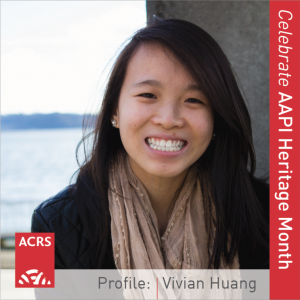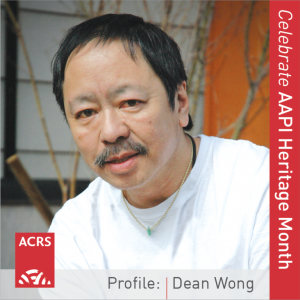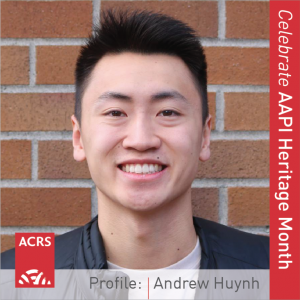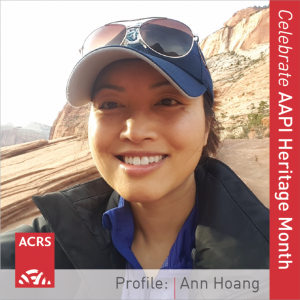Celebrating the Contributions of Asian Americans and Pacific Islanders
By Andria Keirn, Americorps Employment and Self Sufficiency Aide
May is Asian Pacific American Heritage Month. It is an opportunity to celebrate the contributions that Asian Pacific Americans (APA) have made and continue to give to our country. Our diverse cultures, languages, traditions and histories come from more than 40 countries that comprise the majority of the world’s population. More importantly, APA Heritage Month highlights how the Asian American and Pacific Islander (AAPI) experience has helped shape our country’s narrative in many ways.
Below is an excerpt of remarks by our executive director, Diane Narasaki, that were shared during the King County Council’s proclamation of APA Heritage Month at the beginning of May. Watch the full video below.
“Here in King County, Asian Pacific Americans developed fields, helped log the forests, labored in fisheries and factories, and helped to develop the backbone of our economy. Boeing’s first aeronautical engineer, Wong Tsu, was Chinese. The Chinese railroad workers built the transcontinental railway and today’s Chinese and other Asian software engineers are building today’s super information highway.
Asian Pacific Americans from King County have stood up through our history for civil and human rights. Gordon Hirabayashi defended the constitutional rights of all Americans when he challenged the United State’s government’s World War II forced removal and incarceration of Japanese Americans. He was incarcerated in a King County jail before being sentenced to a federal prison. Over 40 years after his conviction, the 9th Circuit overturned his conviction. The Seattle Japanese American Citizens League originated the successful national fight for redress for Japanese Americans. Nemesio Domingo, his brother Silme Domingo in Seattle, and Gene Viernes of the Alaska Cannery Workers Association joined with Tyree Scott of the United Construction Workers, and local leaders of the United Farm Workers to form LELO, then known as the Northwest Labor and Employment Law Office in Seattle and won class-action lawsuits challenging plantation-like racially-segregated and unequal working conditions in the canneries. When Silme and Gene were assassinated in Seattle at the behest of the Marcos regime for their labor organizing and anti-Marcos activities, the committee for justice for Domingo and Viernes, led by Cindy Domingo successfully took on the Marcos dictatorship for these murders.”
* * *
What Diane mentions above are just a handful of examples of the contributions of AAPIs. In honor of APA Heritage Month, I caught up with four locals who are contributing to the evolving narrative of the AAPI community (and who agreed to be part of this article in the time frame my editor gave me to work with).
 Vivian Huang is a first generation Chinese American who was born and raised in Seattle.
Vivian Huang is a first generation Chinese American who was born and raised in Seattle.
“When I was in middle school, we took our first family trip to China, where we visited my parents’ hometown, Kaiping, and later toured Beijing. I hated everything about the trip. I had my friends, my favorite hangout spot, and my grandparents back home. I didn’t care about anything else.
But my parents had insisted that my brothers and I visit their respective villages to see where they grew up. They wanted us to appreciate being born in America because we had so many available opportunities and lived a better life than they had. My parents wanted us to fall in love with a country we never knew. I didn’t understand their strong connection to their homeland; I only knew I wanted to be back in Seattle.
I spoke English the entire two months we were there. I didn’t feel comfortable speaking my broken Chinese. I always felt self-conscious about that. Plus, my relatives and the people we met labeled me the ‘American girl,’ because of my lighter complexion and American mannerisms. I didn’t fit in, and I didn’t want to.”
Through her involvement with the Chinese Information and Service Center’s summer youth program and after reading books like Amy Tan’s The Joy Luck Club, The Kitchen God’s Wife, and The Bonesetter’s Daughter, she came to appreciate her Chinese heritage. Vivian recently graduated from the University of Washington (UW) with a double-major in communications and creative writing. She’s feeding her passion for nonprofit storytelling through her volunteer work and as part of her job. Huang is currently the marketing and communications coordinator for the Executive Development Institute (EDI), which is a nonprofit that offers culturally tailored leadership programs to AAPI and Hispanic professionals in the Puget Sound and Portland areas. Last year, she volunteered as the AV assistant for the Asian Pacific American Heritage celebration at Seattle Center. This year she helped bring The Filharmonics, a popular Filipino a capella group, to the stage.
“If I had to pick my favorite part of the day, I choose the Hum Bow Eating Contest. This year, we’ve renamed the contest, the “Alan Sugiyama Hum Bow Eating Contest” in honor of Alan ‘Al’ Sugiyama. He was a community activist who was loved by all. He passed away earlier this year. I personally knew Al and worked with him, when he was EDI’s executive director. It was mainly due to him and my current manager, Marci, that I became involved with organizing this event.”
Asked why she thinks it’s important to preserve our cultures and stay connected to our heritage, Vivian says:
“I’ve been told I’m lucky, especially by third and fourth generation people. As a first-generation Chinese American, I’ve been able to grow up connected to my heritage and learn first-hand about my culture. As I keep saying, it’s about knowing where you came from and the people who came before you, before your time.
As humans, we love preserving our histories in museums, books, movies, etc. Why? Why do we always look to the past? There are a lot of reasons. But I think we want to learn from it. I think we want to appreciate and build upon what came before us.”
 Dean Wong is a long-time community activist and photojournalist and he currently works at ACRS. He is a second generation Chinese American who was born and raised in Seattle’s Chinatown-International District (CID). Dean’s community organizing efforts trace back to the late 60’s, where he helped create what is now the International District Emergency Center (IDEC) in a vacant storefront in Canton Alley. Since Dean got his first hand-me-down Nikon camera when he was a child, he has pointed his lens toward Seattle’s CID. He has captured over 40 years of the unique experiences of Asian Americans and shed light on community issues. His frames also include Chinatowns in San Francisco, New York and Portland. He is currently trying to preserve Portland’s Chinatown through his work. “Chinatowns are shrinking”, says Dean, but he has faith that Seattle’s CID will “survive and thrive to protect all the history and culture, because we have good people looking out for us.” For Dean, APA Heritage Month means “history, pride and celebrating our shared cultures. It’s an important month as it brings us all together.”
Dean Wong is a long-time community activist and photojournalist and he currently works at ACRS. He is a second generation Chinese American who was born and raised in Seattle’s Chinatown-International District (CID). Dean’s community organizing efforts trace back to the late 60’s, where he helped create what is now the International District Emergency Center (IDEC) in a vacant storefront in Canton Alley. Since Dean got his first hand-me-down Nikon camera when he was a child, he has pointed his lens toward Seattle’s CID. He has captured over 40 years of the unique experiences of Asian Americans and shed light on community issues. His frames also include Chinatowns in San Francisco, New York and Portland. He is currently trying to preserve Portland’s Chinatown through his work. “Chinatowns are shrinking”, says Dean, but he has faith that Seattle’s CID will “survive and thrive to protect all the history and culture, because we have good people looking out for us.” For Dean, APA Heritage Month means “history, pride and celebrating our shared cultures. It’s an important month as it brings us all together.”
 As the son of two Vietnamese immigrants with a white suburban upbringing, Andrew Huynh “celebrated major holidays like Tet, but wasn’t really involved with the Asian community.” That all changed after he went to college and joined Pi Alpha Phi, an Asian American student group at the UW.
As the son of two Vietnamese immigrants with a white suburban upbringing, Andrew Huynh “celebrated major holidays like Tet, but wasn’t really involved with the Asian community.” That all changed after he went to college and joined Pi Alpha Phi, an Asian American student group at the UW.
“To me, APA Heritage Month is a month of learning and understanding. This month is important for me because I get more exposure to not only my culture but the different cultures of those in my community. For a first generation Vietnamese-American, this month helps me connect more with my Asian identity and where my family is from. This month allows me to appreciate all the thing that have allowed me to be where I am.
To be honest, APA Heritage Month was not always important to me. I simply didn’t know that it existed. I started at University of Washington in the fall of 2015, fresh out of my hometown bubble. I was beginning to experience different communities and cultures, even though I was only a 20 minute drive away from home. Not until the spring of 2016 did I learn about APA Heritage Month. However, with this exposure I was then given a choice to take what I have learned and put that into action. This is why this month becomes more important to me each year that I participate. I choose to be more active in learning about my heritage, which has given me a different perspective on my life. It forces me to look outward at what’s happening now and what has happened in the past. Most importantly, I believe that this month allows me to honor those who have come before me by retelling their stories to the present and future generations. At times, this can be the best way to honor not just a person, but their culture and history. This is why I believe it is important to have APA Heritage Month.”
Andrew heads the event planning committee for the Pi Alpha Phi, which recently put on their End Hunger Gala, which raises funds as part of the ACRS Walk for Rice. Andrew educates communities on the issues that AAPIs face, including access to food and mental health services. Last year, Andrew helped organize Asian Pacific Islander mental health & wellness workshops at the UW, and this year, he is organizing self-defense workshops to empower AAPI students on campus.
Andrew plans on attending medical school after he graduates, with the goal of becoming a medic and he plans to continue to empower and support the AAPI community through his profession.
 Ann Hoang emigrated from Vietnam to Washington when she was just two months old. She studied English and computer science at Washington State University and became a software developer after graduation. After working in the male dominated tech industry for a while, she founded a website that increased the visibility of women in the field. Through STEMinist.com, Ann features stories about women in STEM from across the web, elevates the voices of women in this underrepresented field, and encourages young women to join it.
Ann Hoang emigrated from Vietnam to Washington when she was just two months old. She studied English and computer science at Washington State University and became a software developer after graduation. After working in the male dominated tech industry for a while, she founded a website that increased the visibility of women in the field. Through STEMinist.com, Ann features stories about women in STEM from across the web, elevates the voices of women in this underrepresented field, and encourages young women to join it.
“To me, APA Heritage Month means celebrating and finding solidarity with my community. I am a proud first-generation Vietnamese American and am always uplifted by those who recognize my experience as both shared and unique. It provides visibility and the opportunity for education. It’s impactful to see faces and hear voices that are typically ignored or sidelined. It’s also important for people to see the APA community as it truly is: many different populations each with our own culture, history and challenges.”
As a queer woman of color, Ann didn’t see many representations of herself growing up in a Vietnamese church community. She eventually met others who shared her experiences and formed an Asian Lesbian Dinner Club. “I’m either the only Asian or queer person in a room, so it feels so great to be both and around other people just like me,” says Ann. She’s a community organizer and activist for the Seattle Queer Community and is a board member of The Seattle Dyke March, a nonprofit that empowers feminists and queer identified people in the community through fundraising and education.
* * *
Vivian, Dean, Andrew and Ann shared personal stories that reflect the diverse experiences of AAPIs in country; stories that show how our contributions as individuals are valuable to the whole. At ACRS, we believe that the richness of our traditions and cultures are treasures to be celebrated rather than obstacles to contend with. In closing, here’s another excerpt from Diane’s remarks to the King County Council:
“Today, the Japanese American, South Asian and Muslim communities in King County and throughout the country join with other Asian Pacific American communities and the American mainstream against racial and religious profiling. Asian Pacific American attorneys were at the nation’s airports to defend the rights of passengers facing the Muslim travel ban. Asian Pacific Americans were historically active in the civil rights movement, and young Asian Pacific Americans make the links between the Black Lives Matter movement, and the need for all communities to stand with the Black community and demanding justice and police accountability.
Our Asian Pacific American community has faced discrimination through the years, but we have a proud history of resistance. This month, we celebrate that history and commit to building on it and facing today’s daunting challenges. Our resistance is part of a larger movement for justice and human rights, not only locally and in the United States, and not only in May, but a movement for social justice working for a more equitable and peaceful world for all.”




